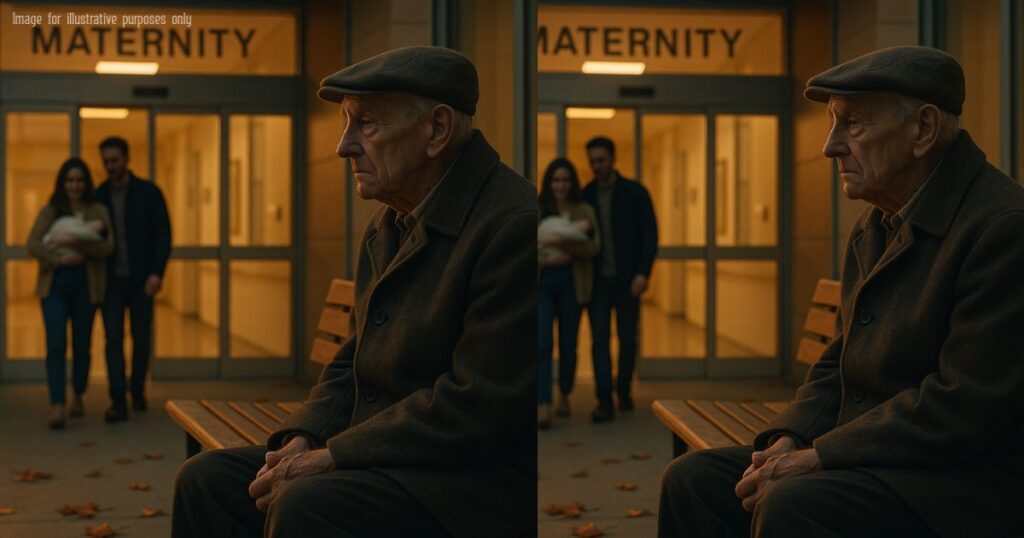“I’ve delivered more babies than I have photos of my own grandchildren.”
That’s not a boast—it’s a regret.
I say it slowly, like a confession in the quiet of a late Sunday afternoon, the kind when your knees ache more than usual and your hands tremble as you button your shirt. Not because of age, though that’s part of it. Mostly because they’re hands that have worked too hard for too long, and somewhere along the way, forgot how to rest.
I was an obstetrician for nearly forty years. Back then, they used to call us “baby catchers” with a wink and a nod, like it was a game, a miracle on repeat. But it wasn’t a miracle. It was sweat. It was blood. It was heartbreak and beauty, sometimes in the same breath. And I was proud of every damn minute of it.
Until one day, they told me I had to retire.
I started back in ’78, when hospital walls were still beige and machines still beeped in Morse code. I remember my first delivery—it was a girl, born in a thunderstorm in July. The lights flickered just as her head crowned, and her mother—no older than twenty—grabbed my wrist and whispered, “Don’t let her slip away.”
She didn’t. Neither did I.
There was a time I could tell a baby’s position just by the shape of a belly. Could feel with my hands what machines now do with blinking lights and artificial voices. Now, they’ve got apps that track contractions, nurses who enter notes on tablets, and “birthing suites” that look more like hotel rooms than labor wards.
We didn’t have time for any of that fluff. We had gloves, a prayer, and the grit to get through another night.
My wife used to leave dinner on the stove, knowing I wouldn’t make it home before it turned cold. Sometimes, I missed birthdays. Sometimes, anniversaries. One time, I missed Christmas morning. But I always showed up for the women who needed me. That was the unspoken trade—your life for theirs.
It wasn’t always pretty. I’ve held the hands of mothers whose babies didn’t cry. I’ve stitched tears while my own heart broke. I’ve told fathers they were husbands again but not dads. Those were the nights that aged me more than the years did.
But I also remember the laughter. The first cry echoing down the hallway. The mothers who hugged me so tight I could feel their ribs. The fathers who clapped me on the back like I’d just scored a touchdown.
We were family in those moments, strangers tied by something holy.
And yet, somehow, the world moved on without me.
I walk past the hospital now and barely recognize it. Sleek glass doors. A reception kiosk that talks. Young doctors with earbuds, speaking to screens more than to people. They don’t know me—not really. A few nod politely, like I’m someone’s grandpa visiting for a check-up.
But I used to run that floor. I trained half the staff there. There are people walking this earth with my name on their birth certificates. And yet, I’ve become invisible.
Retirement isn’t what you think it’ll be. The first few weeks, everyone calls. Cards. Cake. Handshakes. But then the phone gets quieter. The days stretch out like old rubber bands—long and worn and useless for anything real.
I tried to garden, but the ground felt too soft. I tried to read, but the stories didn’t grip me. So I started walking—through parks, through memories. Sometimes, I sit on a bench outside the maternity ward, just to hear a baby cry.
Funny what you miss.
Last week, I went to the pharmacy and saw a young woman holding a chubby-cheeked infant. The baby smiled at me—gummy and wide—and something in my chest pulled tight. I leaned over, smiled back, and said, “You’ve got a happy little girl.”
She looked up. Blinked.
Then said, “Dr. Powell?”
Turns out, I delivered her. She pulled out a photo from her wallet, creased and faded—me, twenty pounds lighter, with darker hair, holding a newborn like she was the only thing in the world that mattered.
“She’s named after my mom,” the young woman said. “But I always remembered you. I was hoping someday I’d run into you.”
I cried that night. Not loud. Just the kind of quiet tears that come when your past reaches out and touches your shoulder.
I’ve come to understand that value isn’t in titles or paychecks—it’s in how deeply your work planted roots in other people’s lives. And those roots… they run deep.
Now, I write letters to the kids I missed watching grow up—my own. I send stories with pictures I find in shoeboxes. I say things like “I’m proud of you” and “I’m sorry I wasn’t there for more of it.” And slowly, they’re writing back.
One grandchild calls me every Sunday now. Another sent me a drawing last month—stick figures with “Papa” written in crayon. It’s taped to my fridge like it’s the Mona Lisa.
I’m learning how to be present in ways I never was.
They say the world’s changing too fast. Maybe they’re right. But some things stay the same.
Babies still cry when they’re born. Mothers still sweat and scream and pray. Fathers still fumble for the camera and forget to press record.
And somewhere, a doctor still leans over and catches life with both hands.
I used to be that doctor.
And though these hands are tired now, they remember.
They remember every heartbeat.
[If this story touched you, pass it along to someone who still remembers the days when people mattered more than machines.]


